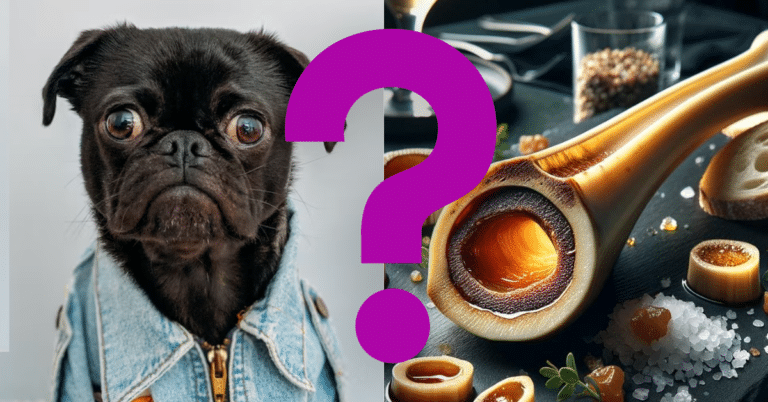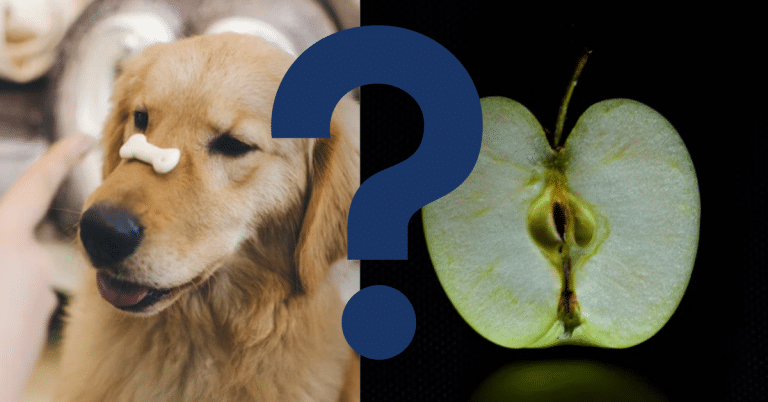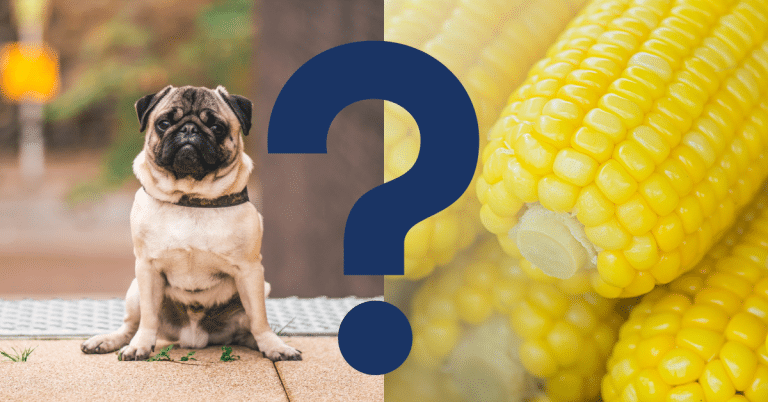Can Dogs Eat Steak Bones? A Vet’s Opinion

Steak bones are leftover parts from cooked steaks. They can be used for making flavorful stocks or broth, but can you feed steak bones to your dog?
No, Feeding steak bones to your dog is not a good idea. While dogs may enjoy chewing on bones, there are risks involved. Cooked steak bones can splinter easily, potentially causing harm to your dog’s mouth, throat, or digestive system. These sharp fragments can lead to choking, internal injuries, or blockages.
Let’s dive in:
Benefits Of Steak Bones For Dogs
While there are potential risks associated as stated previously with feeding steak bones to dogs, there are also a few benefits to consider:
Dental Health
Chewing on bones can help clean your dog’s teeth and promote good oral hygiene. When a dog chews on bones, it helps scrape away plaque and tartar buildup on their teeth. This action can contribute to cleaner teeth and fresher breath.
Mental Stimulation
Gnawing on bones can provide mental stimulation and alleviate boredom for dogs. The process of gnawing on bones requires concentration and can be a stimulating activity for dogs. It can help keep their minds active and provide a form of entertainment. Additionally, the texture and taste of the bone can engage their senses, providing sensory stimulation and adding variety to their daily routine.
Nutrient Source
Bones may contain some nutrients like calcium and phosphorus that can contribute to a balanced diet for dogs. Both these minerals contribute to bone health, muscle function, nerve activity, and enzyme function.
Exercise
Chewing on bones can help strengthen jaw and neck muscles in dogs. When dogs chew on bones, it requires them to use their jaws and apply pressure to break down and grind the bone. This repetitive chewing action engages and exercises the muscles in the jaw and neck area. Over time, this muscle exercise can help improve their strength and promote muscle tone.
These benefits may make steak bones seem like a good food source for dogs. It is important to also consider the potential risks:
Choking Hazard
Dogs can bite off pieces of bones that are too large or swallow them whole, leading to choking or blockages in their throat or digestive tract.
Dental Damage
Hard bones can cause dental fractures, broken teeth, or damage to the gums and mouth, leading to pain and potential infections.
Splintering
Cooked bones can splinter easily, and these sharp fragments can injure a dog’s mouth, throat, or cause internal injuries as they pass through the digestive system.
Intestinal Obstruction
Bone fragments can create blockages in the intestines, leading to severe pain, discomfort, and potentially requiring surgery to remove the obstruction.
Perforation
Sharp bone fragments can puncture or perforate the stomach, intestines, or other organs, leading to a life-threatening condition that requires immediate veterinary attention.
Pancreatitis Risk
Fatty bones, such as steak bones, can contribute to an increased risk of pancreatitis in dogs, a potentially serious inflammation of the pancreas.
Bacterial Contamination
Raw or improperly handled bones can carry harmful bacteria like Salmonella, which can cause food poisoning and gastrointestinal issues in dogs.
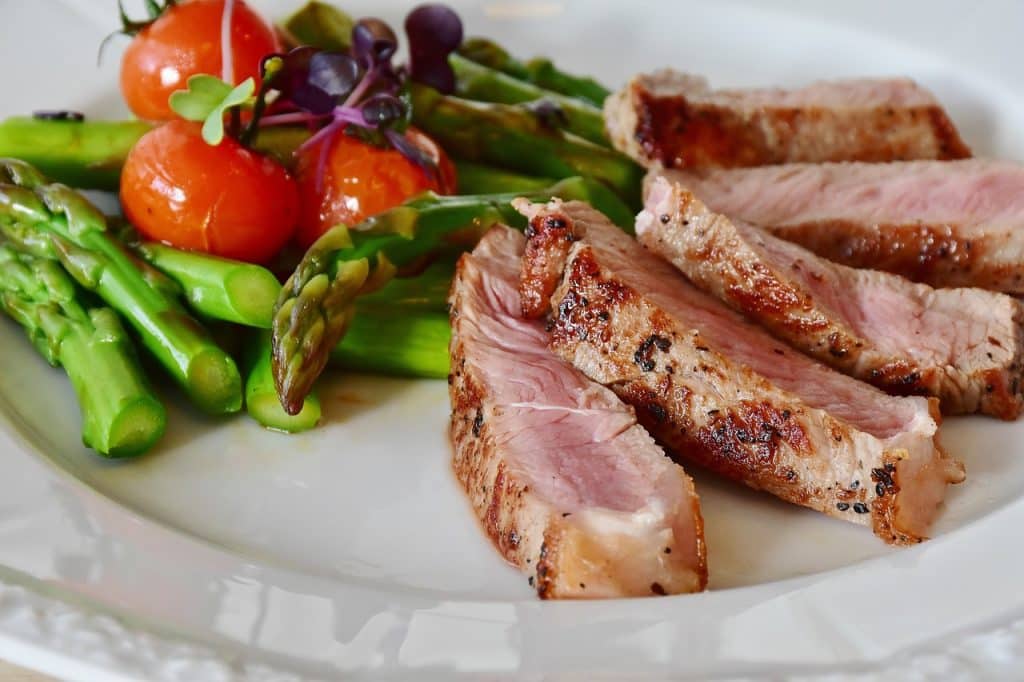
How To Safely Give Steak Bones To Dogs
Now that we are aware of potential benefits and risks of steak bones, we can move toward how we can safely give steak bones to dogs. Here are some steps you can take to minimize the risks associated with feeding steak bones to your dog:
Choose The Right Bones
Opt for raw, meaty bones specifically designed for dogs. Avoid cooked bones as they can splinter easily and pose a risk. The bone should be size-appropriate for your dog, large enough to prevent swallowing or choking.
Supervise
Always supervise your dog while they chew on bones. This allows you to intervene if any issues arise and ensures their safety during the chewing session.
Moderate
Limit the duration of chewing sessions to prevent excessive wear on teeth and reduce the risk of accidents. Additionally, offer bones on an occasional basis rather than as a daily routine to mitigate potential risks.
Storage And Handling
Store bones in a safe place where your dog can’t access them freely. When giving a bone, make sure to handle it properly and wash your hands afterward to prevent the spread of bacteria.
Bone Removal
If the bone starts to splinter or becomes too small, remove it immediately to prevent choking or ingestion of sharp fragments.
Remember, not all dogs can handle bones safely, so it’s crucial to consider your dog’s individual chewing habits, dental health, and any specific dietary or health conditions. Consulting with a veterinarian is always recommended for personalized advice regarding bone chewing for your dog.
Will Steak Bones Make A Dog Sick?
Feeding steak bones to your dog can make them sick. There are several risks associated with giving steak bones to dogs, including choking, dental damage, intestinal blockages, and bacterial contamination. Cooked bones, in particular, can splinter easily and cause harm to a dog’s digestive system. Additionally, consuming excessive amounts of fat from the bones can increase the risk of pancreatitis in dogs. It’s important to prioritize your dog’s safety and consult with a veterinarian about safe alternatives for chewing and feeding bones.
Can Dogs Eat Steak Bones Variations?
It is generally not recommended to feed dogs any variations of steak bones. This includes cooked steak bones, as they can splinter and cause injuries to a dog’s mouth, throat, or digestive system. Raw steak bones may also pose risks, such as bacterial contamination.
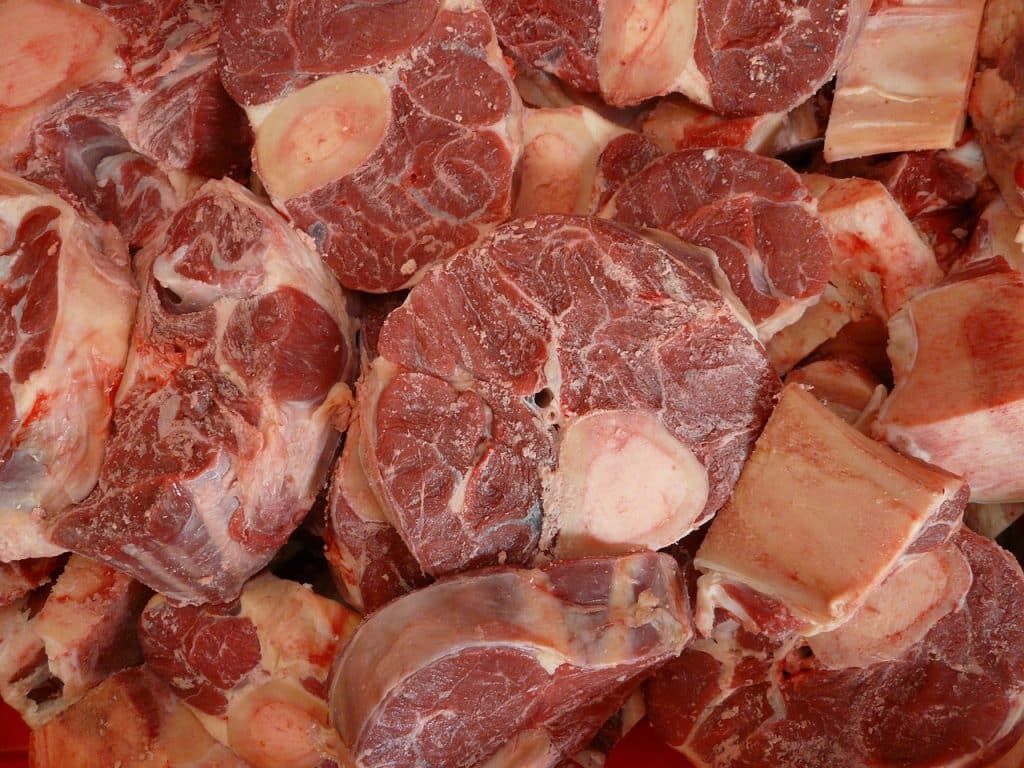
Vet’s Summary
Feeding steak bones to dogs is not advisable due to the potential risks involved. While there are some benefits, such as dental health, mental stimulation, nutrient source, and muscle exercise, the risks outweigh them. Choking hazards, dental damage, splintering, intestinal obstructions, perforation, pancreatitis risk, and bacterial contamination are all risks associated with steak bones. To safely give steak bones to dogs, it is important to choose the right bones, supervise chewing sessions, limit the duration, store and handle bones properly, and remove them if they splinter or become too small. You should also provide your dog with probiotic supplements. Probiotics are micro organisms with aid in healthy digestion.
Videos To Watch
If you are wondering what steak related foods are good to give your dog, watch this:
And if you want to know what you should do if your dog eats a rib bone, watch this:


